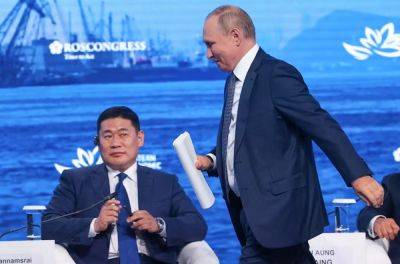For many investors and intellectuals leaving China, it’s Japan — not the US — that’s the bigger draw
TOKYO (AP) — One by one, the students, lawyers and others filed into a classroom in a central Tokyo university for a lecture by a Chinese journalist on Taiwan and democracy — taboo topics that can’t be discussed publicly back home in China.
“Taiwan’s modern-day democracy took struggle and bloodshed, there’s no question about that,” said Jia Jia, a columnist and guest lecturer at the University of Tokyo who was briefly detained in China eight years ago on suspicion of penning a call for China’s top leader to resign.
He is one of tens of thousands of intellectuals, investors and other Chinese who have relocated to Japan in recent years, part of a larger exodus of people from China.
Their backgrounds vary widely, and they’re leaving for all sorts of reasons. Some are very poor, others are very rich. Some leave for economic reasons, as opportunities dry up with the end of China’s boom. Some flee for personal reasons, as even limited freedoms are eroded.
——
EDITOR’S NOTE: This story is part of the China’s New Migrants package, a look by The Associated Press at the lives of the latest wave of Chinese emigrants to settle overseas.
——
Chinese migrants are flowing to all corners of the world, from workers seeking to start businesses of their own in Mexico to burned-out students heading to Thailand. Those choosing Japan tend to be well-off or highly educated, drawn to the country’s ease of living, rich culture and immigration policies that favor highly skilled professionals, with less of the sharp anti-immigrant backlash sometimes seen in Western countries.
Jia initially intended to move to the U.S., not Japan. But after experiencing the coronavirus outbreak in China, he was anxious to leave and his American visa application was







